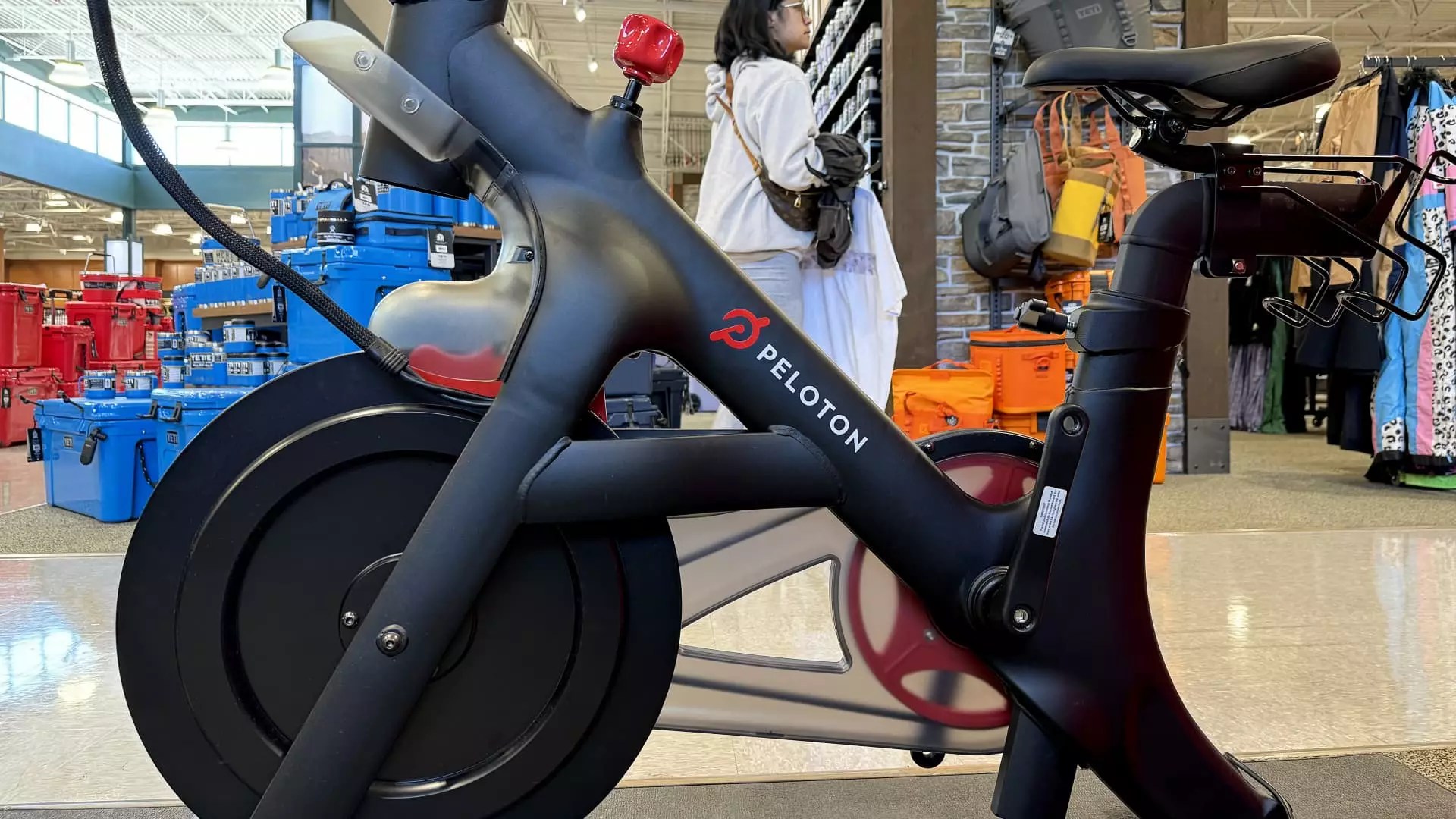In an age where sustainability and circular economies are becoming increasingly important, Peloton’s recent foray into the resale market with their launch of Repowered is more than just a business strategy; it’s a social statement. With countless bikes and treadmills gathering dust in homes across the nation, Peloton is strategically positioning itself to capture the burgeoning second-hand market for fitness equipment. By facilitating the resale of its products, Peloton is not merely recycling its equipment; it is inviting a broad spectrum of customers into a community that values both fitness and eco-friendliness.
Unlike the indifferent marketplaces that have dominated the selling landscape, Repowered aims to forge a new identity for Peloton. By providing a user-friendly platform backed with generative AI to assist sellers in determining fair prices, Peloton is enhancing the overall experience of both buyers and sellers. This careful attention to user experience positions Peloton as a forward-thinking brand that understands the evolving consumer psyche—one that increasingly seeks both value and ethical responsibility in their purchasing decisions.
Financial Benefits for Sellers
One of the standout features of Peloton’s resale platform is its financial incentive for sellers. With sellers receiving 70% of the sale price, it is a compelling proposition for those looking to declutter their homes while still earning some cash. The additional discount towards new equipment entices users to remain within the Peloton ecosystem, ultimately fostering brand loyalty. In a world where consumers are navigating tight budgets, this initiative could prove to be a game-changer, breathing new life into otherwise stagnant memberships and fostering a stronger relationship between the brand and customers.
Moreover, the reduced activation fee for buyers acts as another attractive draw, making fitness more accessible to those who may be hesitant to invest in brand-new equipment. This financial layer speaks volumes to Peloton’s commitment to expanding its audience, especially among price-sensitive consumers.
Competing with Established Marketplaces
By launching Repowered, Peloton is declaring war on popular platforms such as Facebook Marketplace and smaller startups like Trade My Stuff. With the advent of Resold, the company is not merely dabbling in resale; they are disrupting a traditional market space that has been dominated by unregulated platforms. While the founders of Trade My Stuff may lament Peloton’s move, their concerns bring attention to the larger issue of brand integrity and the assurance of quality that Repowered promises to deliver.
As Peloton closely monitors the sales process, buyers can have peace of mind knowing the history of the equipment they are purchasing. This kind of transparency is often lacking in peer-to-peer sales, where the authenticity of listings can sometimes be questionable.
Melissa’s Perspective—The Reality of Fitness Equipment Ownership
From the perspective of a seasoned fitness enthusiast, Peloton’s initiative represents both an opportunity and a reality check. While there’s an undeniable excitement surrounding the brand, the reality is that many owners have a collection of expensive workout gear stretching across an unused room. Indeed, the cliché of Peloton bikes serving as glorified clothes racks is not without merit. The company understands that a substantial portion of their original consumer base has churned, leading to a critical need to innovate and captivate both existing and potential customers anew.
Yet, amid the potential for growth, it’s essential to ask—will Repowered effectively combat cancellations and sustain lasting membership, or is it merely a short-term fix? In an industry rife with competition and consumer skepticism, Peloton’s brand must go beyond initial resale and leverage this opportunity into long-term engagement. If they can do this, it will not only enhance their market position but also ensure a more promising future in a crowded fitness landscape.
Building Connections through Community
At its core, Repowered isn’t solely about commerce; it embodies community. This initiative has the potential to build meaningful connections among users—a vital aspect in an increasingly digital age dominated by isolation. By facilitating interactions between buyers and sellers, Peloton fosters a sense of belonging, creating an ecosystem that goes beyond the mere transaction of goods.
While competition in the resale market is inevitable, Peloton seems well-equipped to personalize this experience. By leveraging its established brand loyalty and enthusiastic user base, Peloton can capitalize on a unique customer relationship that goes beyond fitness. It’s about shared experiences, mutual aspirations, and the collective journey toward wellness.
Ultimately, Peloton’s Repowered initiative is not merely a pragmatic move in a shifting landscape; it’s a deliberate leap towards innovation, socially driven values, and community engagement. Whether this bold venture pays off in the long run remains to be seen, but one thing is certain: Peloton is prepared to lead the way in revolutionizing how fitness enthusiasts buy, sell, and connect.


Leave a Reply